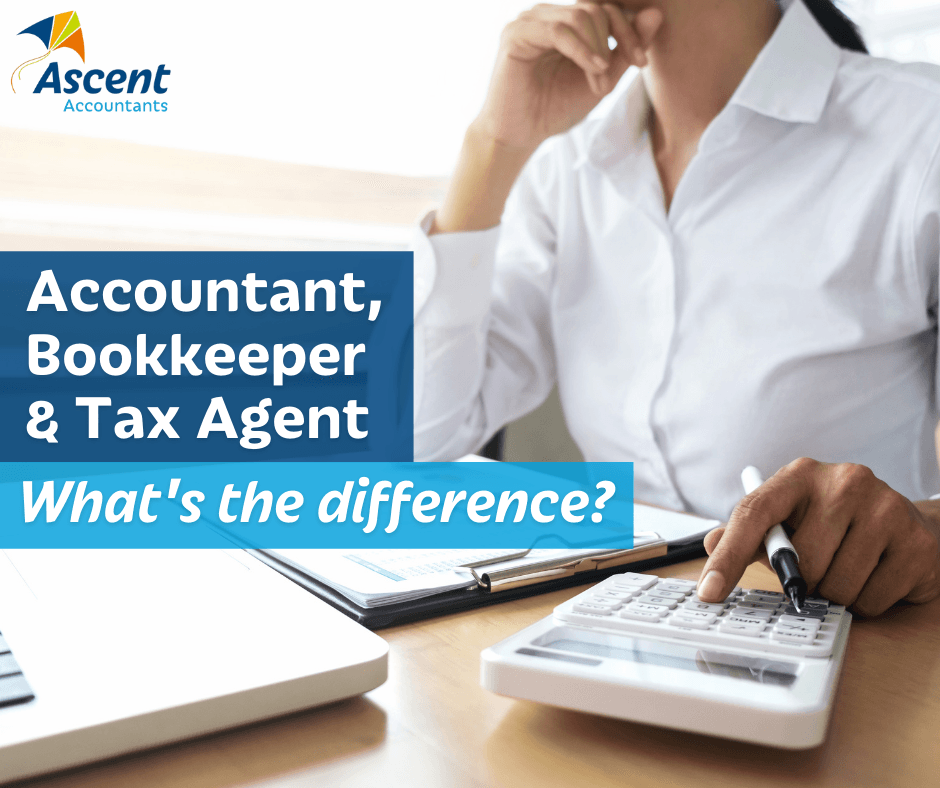Accountant, bookkeeper and tax agent – what’s the difference?

Accountant, Bookkeeper and Tax Agent: What's difference?
Accountants
Accountants usually assist in preparing financial statements that reflect your business's performance. They are often responsible for collecting, recording, analysing, and visualising a business's financial operations. Depending on the size and scale of your business, accountants can take on varying levels of responsibility.
An accountant interprets financial information to help with decision-making processes. This can mean providing annual information or actively keeping you updated with real-time data. Accountants are also often able to provide financial advice.
Bookkeepers
A bookkeeper maintains your business's account records. They help small businesses by recording financial transactions in account books or accounting software packages. Bookkeepers can be internal but are more often outsourced to professional services.
A bookkeeper's responsibilities include:
- Verifying recorded transactions and reporting any irregularities
- Keeping financial records
- Maintaining and balancing accounts
- Monitoring cash flow and lines of credit
- Producing financial statements, budgets, and expenditure reports
- Preparing invoices, bank deposits, and purchase orders
- Reconciling accounts against monthly bank statements
Tax agents
Tax agents differ significantly from the above professions. Tax agents are specialised professionals who have studied law and tax and meet the requirements set out in the Tax Agent Services Regulations (TASR). They must also be registered by the Tax Practitioners Board (TPB). With these qualifications, a tax agent can provide tax services to the public and businesses.
Often, accountants are also tax agents, but this is not always the case.
Some roles of a tax agent include:
- Representing your business in dealings with the Commissioner of Taxation in relation to taxation law disputes, audits, or reviews
- Advising on liabilities, obligations, or entitlements your business needs to comply with under taxation law
Accountants, bookkeepers, and tax agents are distinct professions with separate tasks and responsibilities. As a small business owner, while these services aren't always necessary, they can significantly ease your workload. They help avoid costly mistakes and add real value to your business.
Finance management can be a tricky part of small business ownership, so enlisting the help of professionals can be a lifesaver.
Need help with your accounting?








